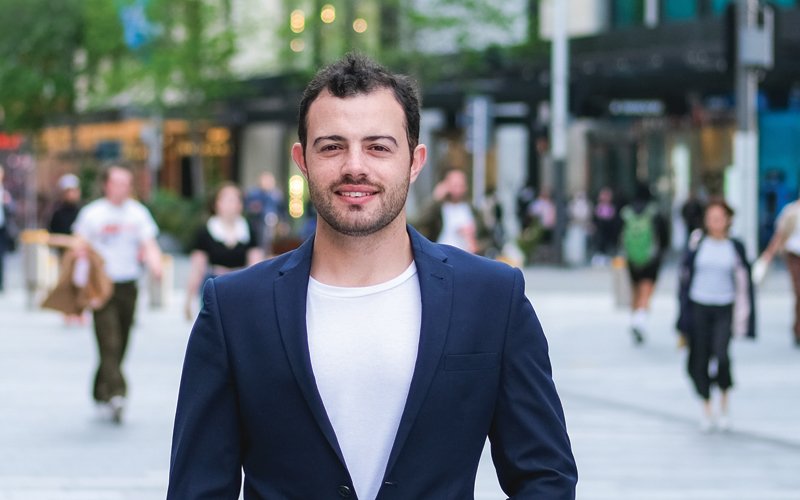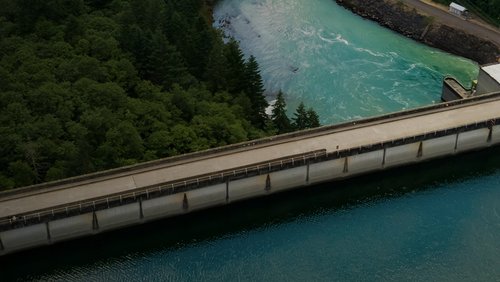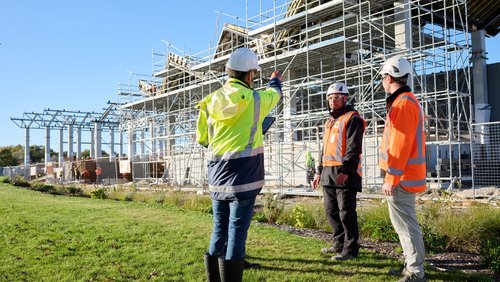27 Jan 2023
While Waldo Posthumus is a passionate advocate for the lesbian, gay, bisexual, transgender, queer, (questioning), intersex, asexual (LGBTQIA+) community in the engineering profession, his ultimate dream is for the diversity and inclusion roles he holds, and for groups in which he is active, to become unnecessary.
When Tauranga-based civil engineer Waldo Posthumus and his husband of five years moved to New Zealand from South Africa three years ago, they found their new country to be very different from their homeland.
“I hadn’t come out at all during my high school years, because although there are pockets of more liberal thinking in the cities, South Africa is very religious, as are my parents.”
Waldo completed a Bachelor of Engineering at the University of Pretoria where he felt free to experiment with his sexuality and understand how he identified.
“I initially wanted to become a doctor and engineering was my back-up degree. It was only after I started studying engineering that I realised how much I loved it, the problem solving and overcoming challenges.”
When Waldo entered the engineering profession, he didn't come out “but my employers found out through social media. It was a religious company and a fellow staff member bluntly told me that her beliefs did not align with mine”.

Image: Lazyrivers Photography
On arriving in New Zealand however, and during an interview with Aurecon, Waldo was told the company was Rainbow Tick accredited, but he didn’t then know what that meant. Rainbow Tick is a certification mark for organisations that complete a diversity and inclusion assessment process and embrace the diversity of sexual and gender identities.
Since then, Waldo has filled roles within Aurecon’s diversity, inclusion and equity programme, including as co-coordinator of the programme and more recently, the strategy lead for the LGBTQIA+ pillar, which is one of five, along with Te Ao Māori, gender, accessibility/disability and cultural pillars.
He’s a Te Ao Rangahau Young Engineers committee member and a former Tauranga Moana Pride committee member. He recently organised a multi-party workplace discussion focusing on transgender and gender diversity.
Waldo believes diversity and inclusion practices are progressing in the engineering profession.
“There's a wide spectrum of change happening. The driver of change was gender – women and men – which led to all these other pockets of change coming through, and one of those elements that played a significant role, particularly for Aurecon, was the Rainbow Tick. Beca and Stantec have also become rainbow accredited recently.”
He says: “For the rainbow community, we're getting there, but we still don’t have prominent leaders that are LGBTQIA+. When we were arranging the panel discussion for example, finding a leader to be on the panel was challenging. There are LBGTQIA+ industry leaders of course, but they're not necessarily very vocal about it.”
He says the overarching aim is for these advocacy groups to no longer be necessary, and that a key strategy is through storytelling.
“It's about resonating with shared experiences. Knowing that someone before you did it, and it's okay for you to do the same.”
Waldo says: “We need to get to a point where we don’t need to ask people to identify their preferred pronouns, or ask people if they are male or female, because they don’t have to be either. And to achieve this, education is really important.”
“We also need to attract more rainbow young people into engineering by getting LGBTQIA+ embedded into STEM (science, technology, engineering and maths) at university and school levels. There are not yet LGBTQIA+ groups going into schools to encourage people into STEM, as there are for women and Māori.”
He'd like to see Te Ao Rangahau establish an LGBTQIA+ group that focuses on wider education.
“The Diversity Accord is a real step forward in helping create a more diverse and inclusive industry, but we could take this even further by establishing a group focused specifically on LGBTQIA+ inclusion.”
He advises LGBTQIA+ people who work in engineering to be vocal.
“There are a lot of people out there still hiding, and also people whose children are LGBTQIA+. Join a support group where you can meet people who have similar experiences.”
And how can engineering companies make their workplaces more inclusive?
“Start the conversation – you don’t have to get a Rainbow Tick to do that. You can celebrate special events, such as Wear it Purple Day, nonbinary day, international pride month. Don’t be afraid to ask questions, to use people’s pronouns, make mistakes. If it's coming from a good place in your heart, that’s ok.”
This article was first published in the December 2022 issue of EG. The full version of EG is available in your member area




